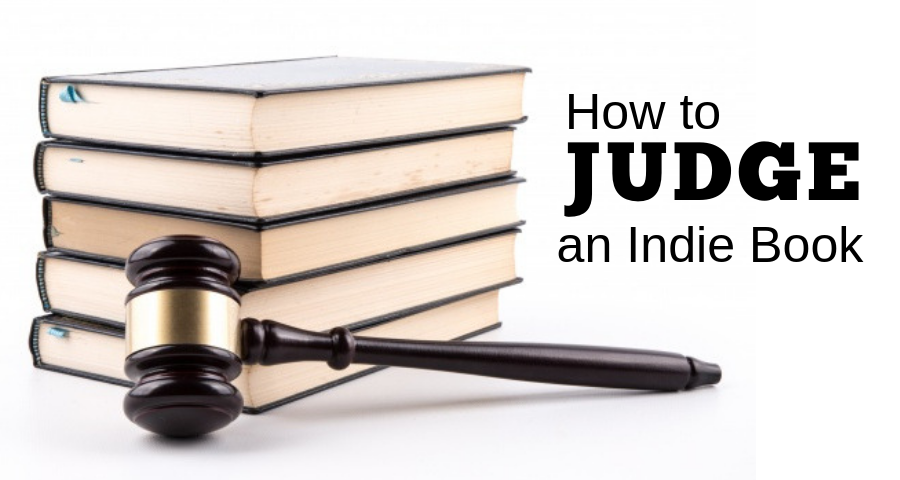
Sorry for the clickbait-y title, but this subject has been on my mind recently. Since I read a lot of indie books, I spend a lot of time sifting through books on Amazon and Twitter (yes, I sometimes browse social media to find my next read) looking for something to purchase. It’s hard to tell whether a novel will be worth reading at first glance, but I also don’t want to spend hours upon hours poring over product pages, trying to decide if this title is worth the $3.99 price tag. But Beth, an ebook costs less than a latté. Yes, but imagine buying 30 lattés, and only four are potable, and only one of those is something you actually like. That’s effectively paying $120 in order to enjoy only one book. Just subscribe to Kindle Unlimited! Fair point, but I also don’t want to limit myself.
At the airport, I realized that I had not yet loaded new books onto my Kindle for my trip to the Caribbean. I quickly jumped on the WiFi and started sending novels to my ereader so I’d have plenty of in-flight and beachside reading. Once I had three new novels loaded, I figured I was set for the week.
Except that I quickly cast aside the first two to my Do Not Finish pile, and spent the entire week reading the last book. Thankfully, it was long enough to last all that time.
However, I couldn’t help but wonder how I had picked out such duds. After a good deal of thought, I’ve put together some strategies on how to narrow the search so you're more likely to enjoy the next book you pick out. I’m not guaranteeing my method is 100% foolproof, but it’ll make finding great books easier.
The Cover
Yes, I just told you to judge a book by its cover. To be honest, the cover isn’t the greatest indicator of quality, but it is the first thing you see, so it’s a great place to start.
Generally, a good book will have a nice, professional cover. This isn’t always the case—there are a number of examples of an excellent writer on a shoestring budget ultimately having to make their own cover, but these are far outnumbered by careless books slung out there with half-assed covers.
Successful authors know how important a cover is at marketing a book, so there’s a lot of deeper analysis which can be done on the front of the book (is it genre appropriate, does it catch the eye, does it communicate the themes of the book, etc.) but I’m going to recommend you ignore all of that. Just a simple, Is this cover professional? Yes or no, will do for now. Not every author is marketing savvy, and a novel with a pro cover that doesn’t necessarily sell the book is much better than one with a shit cover.
The Description
The main questions to ask are:
- Does it make sense?
- Are there grammatical errors?
- Does the story sound engaging and like something you might enjoy?
- Does the description match the categories the book is in?
Finally, it’s important that if the description is for a certain genre—say, science fiction—it’s important that the book is listed in that category. However, if the description sounds like fantasy romance but the novel is categorized as a western, that’s a serious red flag. The author may not know what genre their book lies in, which means the story will likely be unfocused, confusing, or unbelievable. Even a cross-genre book will make it clear which genres apply in the description.
The Author Profile
Since I read on Kindle, I’m purchasing books from Amazon, and an important step for me is learning a little about the author. Specifically, I look at their catalog of books. I’m looking for at least of few of their books having a number of reviews, with most of them at a 4+ star rating. I also check that their most popular book is selling well, even if that’s not the title I’m interested in purchasing. If the author has no reviews, several books with poor reviews, or only one title, I’ll pass. I’m not trying to discriminate against debut authors, but I won’t read the first and only title by a writer unless I know them through social media and have followed their writing journey—this gives me way more information on them and their book than a product page can.
The Reviews
At this point, I pretty much know whether or not I want to read this particular book, but if I’m somehow still undecided, I’ll check out the reviews. Ignore all the short 5 star reviews, and focus instead on the 2- to 4-star reviews. These will let you better gauge what people did and didn’t like about the book. If several people dislike the extensive violence, but you love gratuitous gore, this title might be right up your alley. Similarly, if readers praise the fast pacing, while you prefer a slow burn, you might want to pass.
The overall star rating isn’t nearly as important as the content of the reviews. Although, if a book has an overwhelming proportion of 1- and 2-star reviews, that might give me pause.
I follow these steps in order to weed out the books I might not enjoy. But probably the best way to find a great indie book is through recommendations. If you have a friend, acquaintance, or a favorite book blogger who has a similar taste in reading as you, ask them which book you should read next.
And once you’ve read the indie novel you picked up, don’t forget to write a review and recommend it to your friends!
And once you’ve read the indie novel you picked up, don’t forget to write a review and recommend it to your friends!

No comments:
Post a Comment